Екскурсії для гостей музею історії НУБіП України
11 лютого 2026 р. відбулась ознайомлювальна екскурсія для викладачів Національного лінгвістичного університету. Проф. ВАСИЛЬЧУК В.М. та доц. ГЕДІН М.С. залишили відгук у "Книзі почесних гостей".
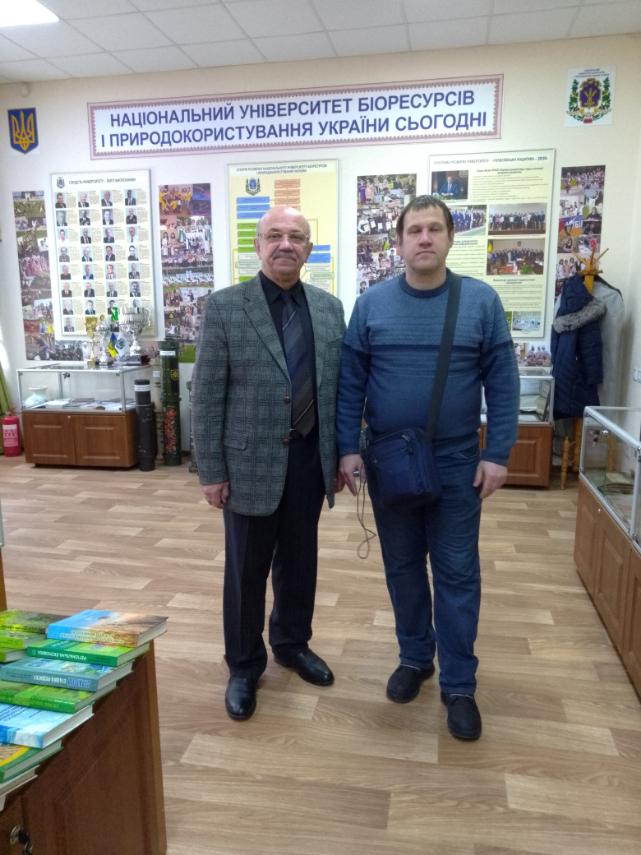
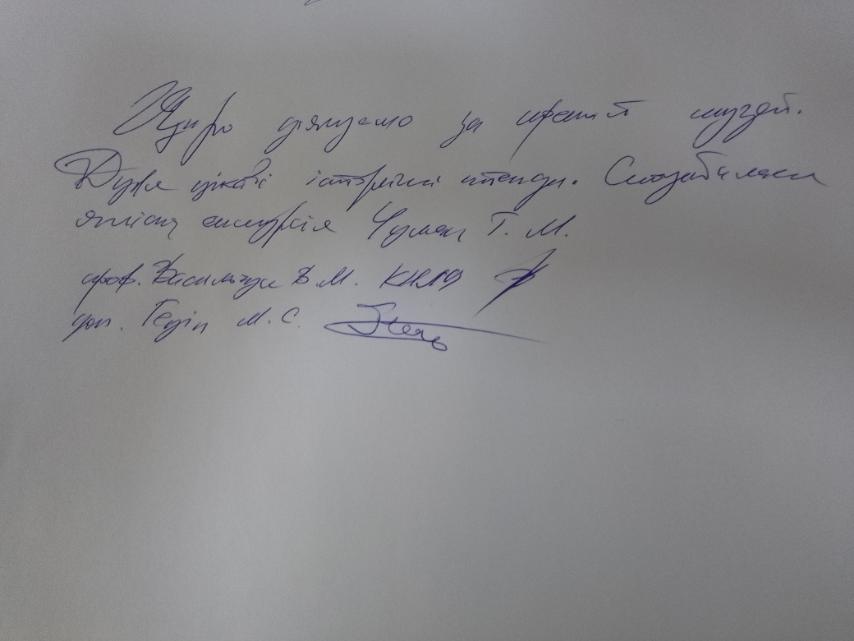
17 листопада 2025 р. Студенти 1 курсу гуманітарно-педагогічного факультету спеціальність "Журналістика" відвідали музей історії НУБіП України.
Детальніше https://nubip.edu.ua/news/muzey-nubip-ukrayiny-de-velychna-spadshchyna-zustrichayetsya-z-maybutnim
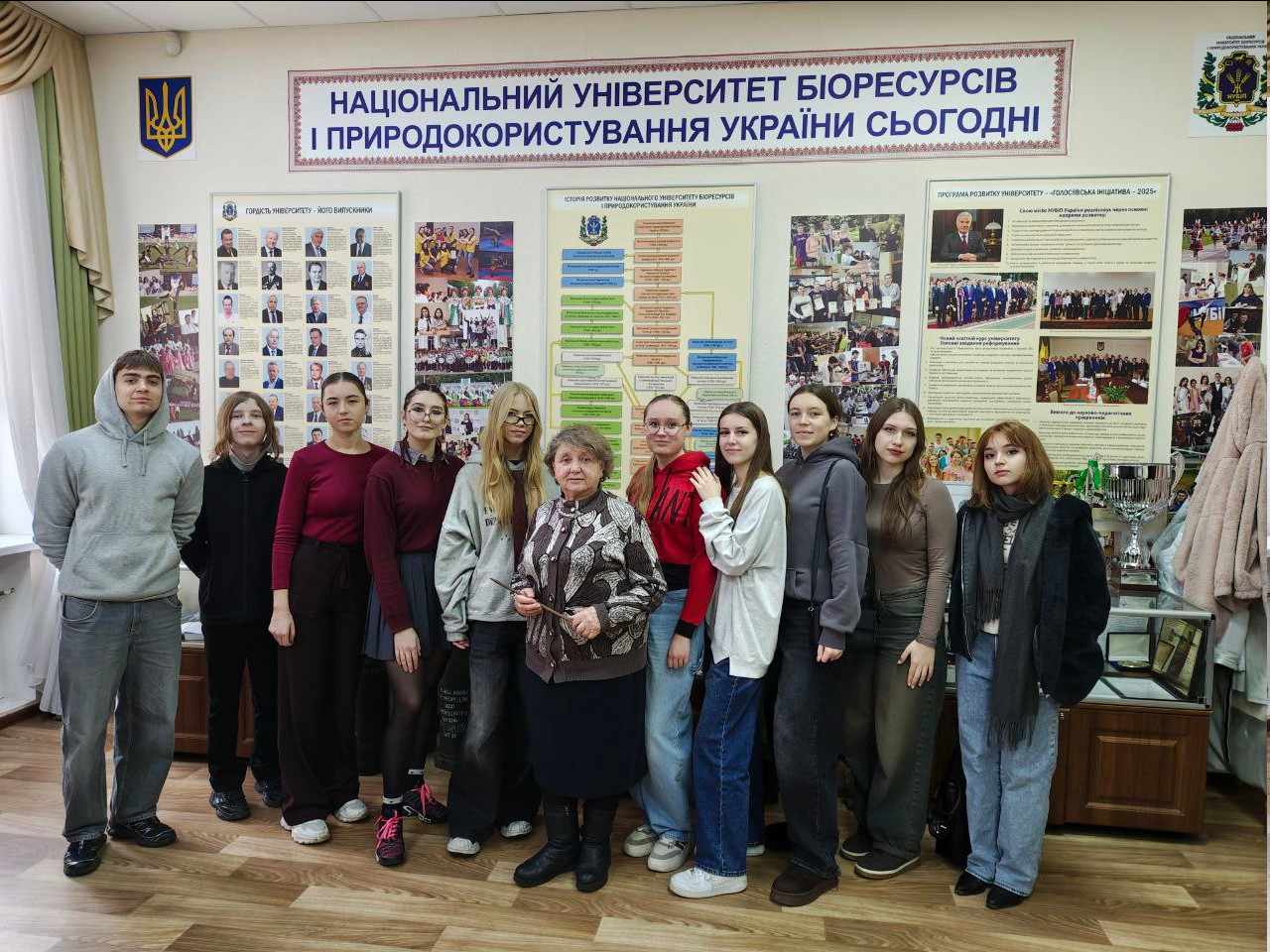

4 листопада 2025 р. Студенти 1 курсу гуманітарно-педагогічного факультету спеціальність "Психологія" відвідали музей історії НУБіП України.

3 листопада 2025 р. Студенти 1 курсу гуманітарно-педагогічного факультету спеціальність "Фізичне виховання" відвідали музей історії НУБіП України.

28 жовтня 2025 р. Студенти 1 курсу спеціальності "Аграрний менеджмент" відвідали музей історії НУБіП України.

14 жовтня 2025 р. Студенти 1 курсу гуманітарно-педагогічного факультету спеціальність "Філологія" відвідали музей історії НУБіП України.
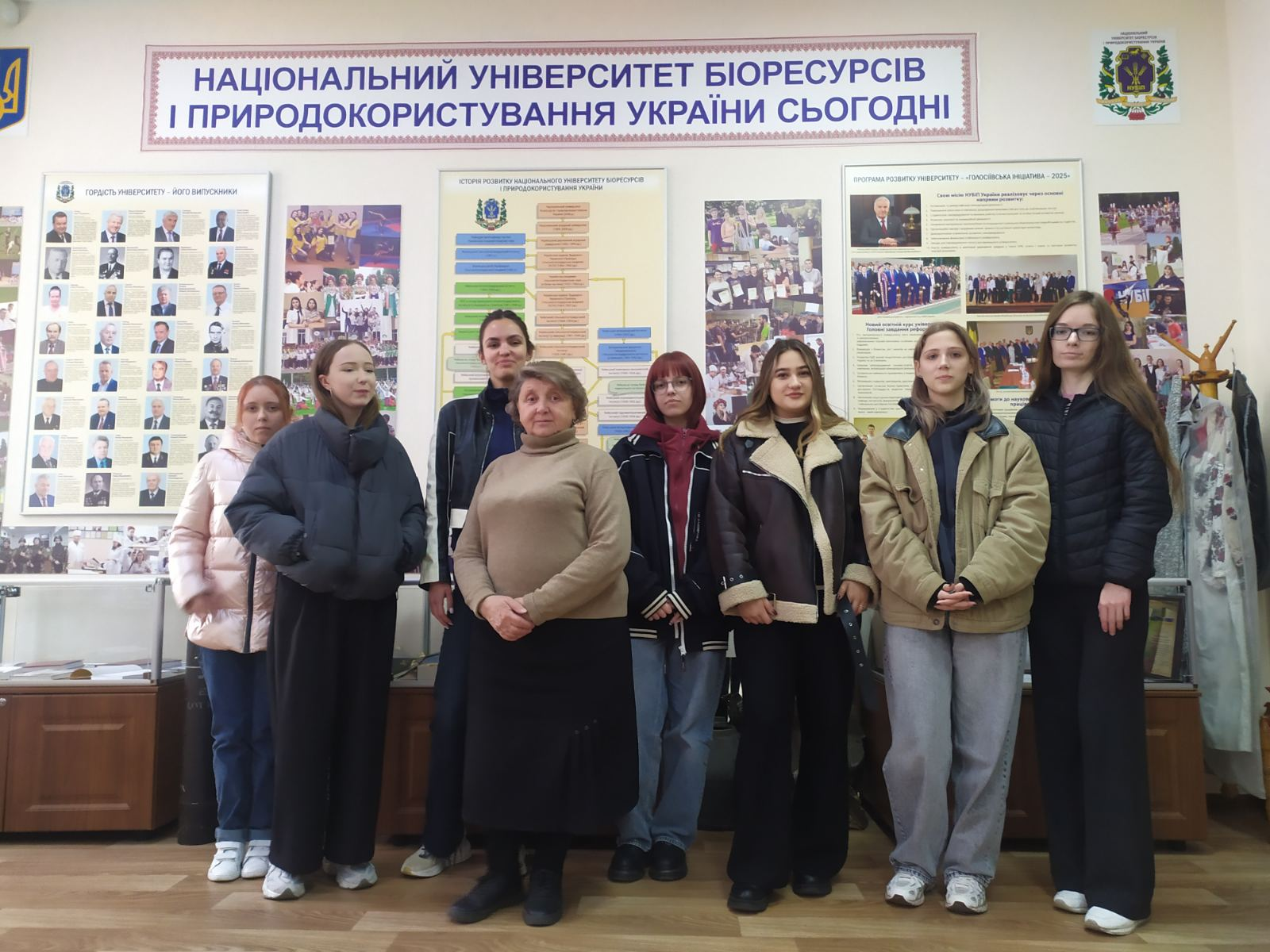
29 вересня 2025 р. Студенти 1 курсу економічного факультету спеціальність "Міжнародна економіка" відвідали музей історії НУБіП України.
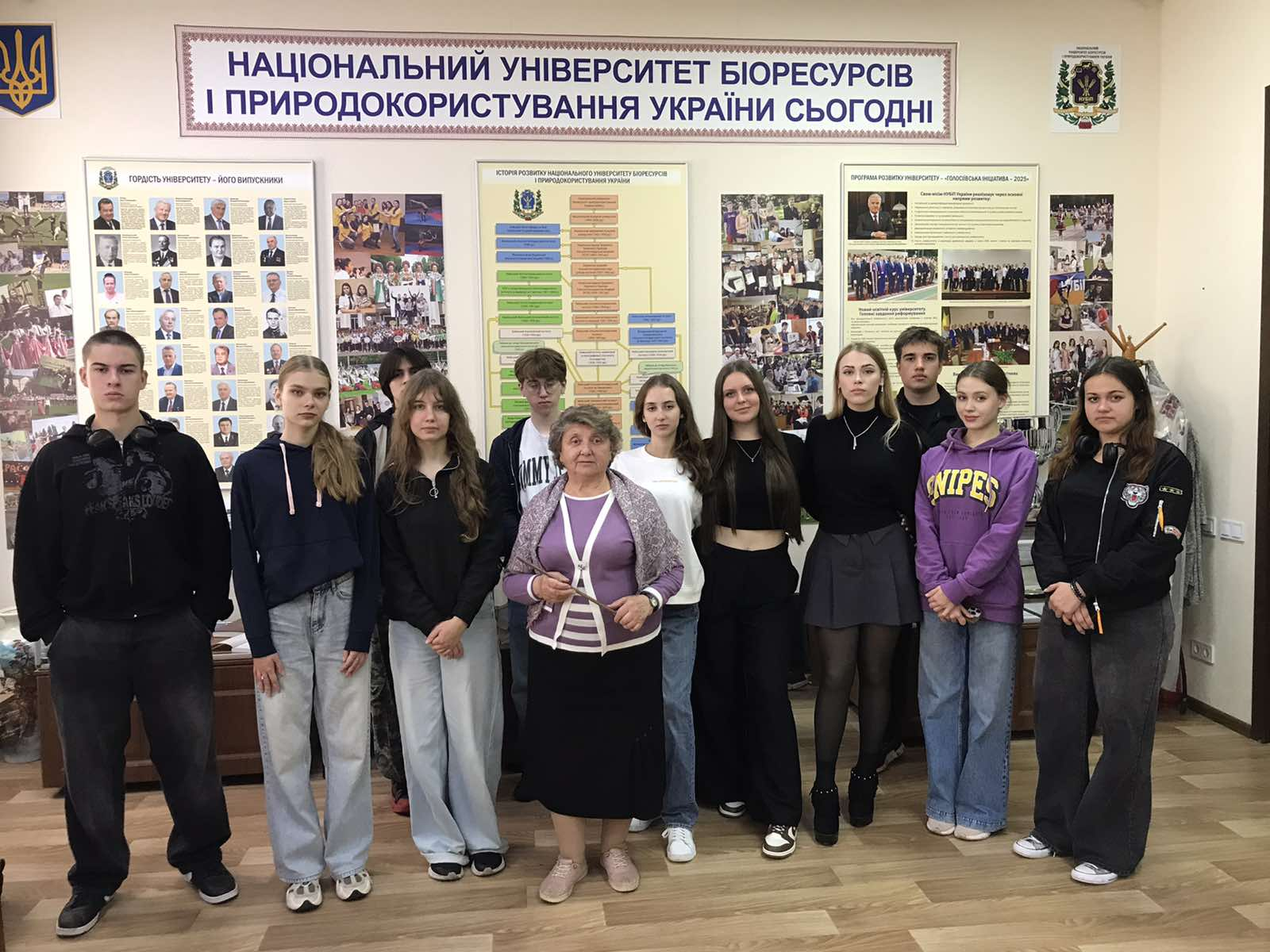
25 вересня 2025 р. Студенти 1 курсу (5 та 6 групи) спеціальності 072 "Фінанси, банківська справа, страхування та фондовий ринок"
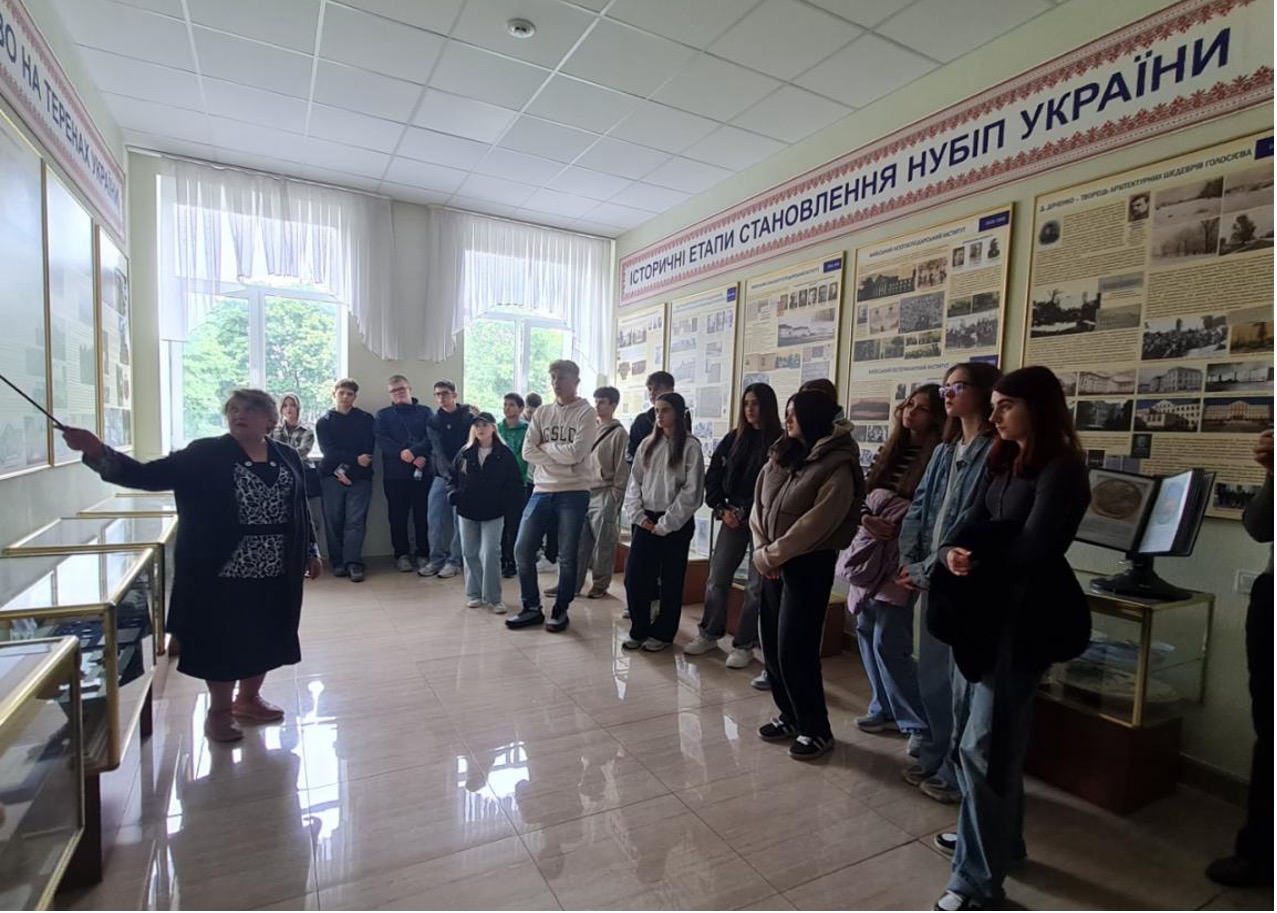
25 вересня 2025 р. Студенти 1 курсу факультету тваринництва та водних біоресурсів відвідали музей історії НУБіП України.
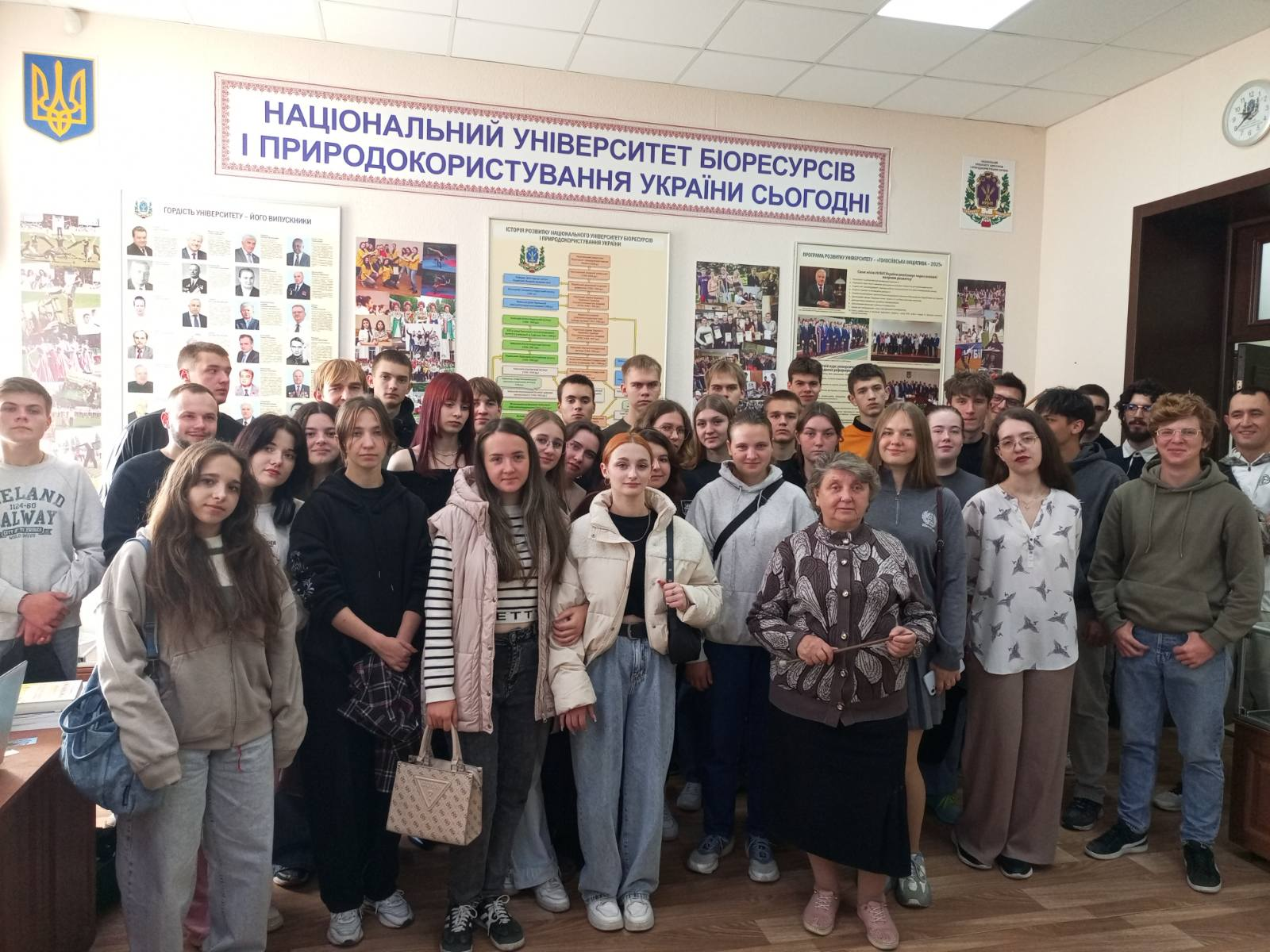
24 вересня 2025 р. Студенти ННІ лісового та садово-паркового господарства відвідали музей історії НУБіП України.
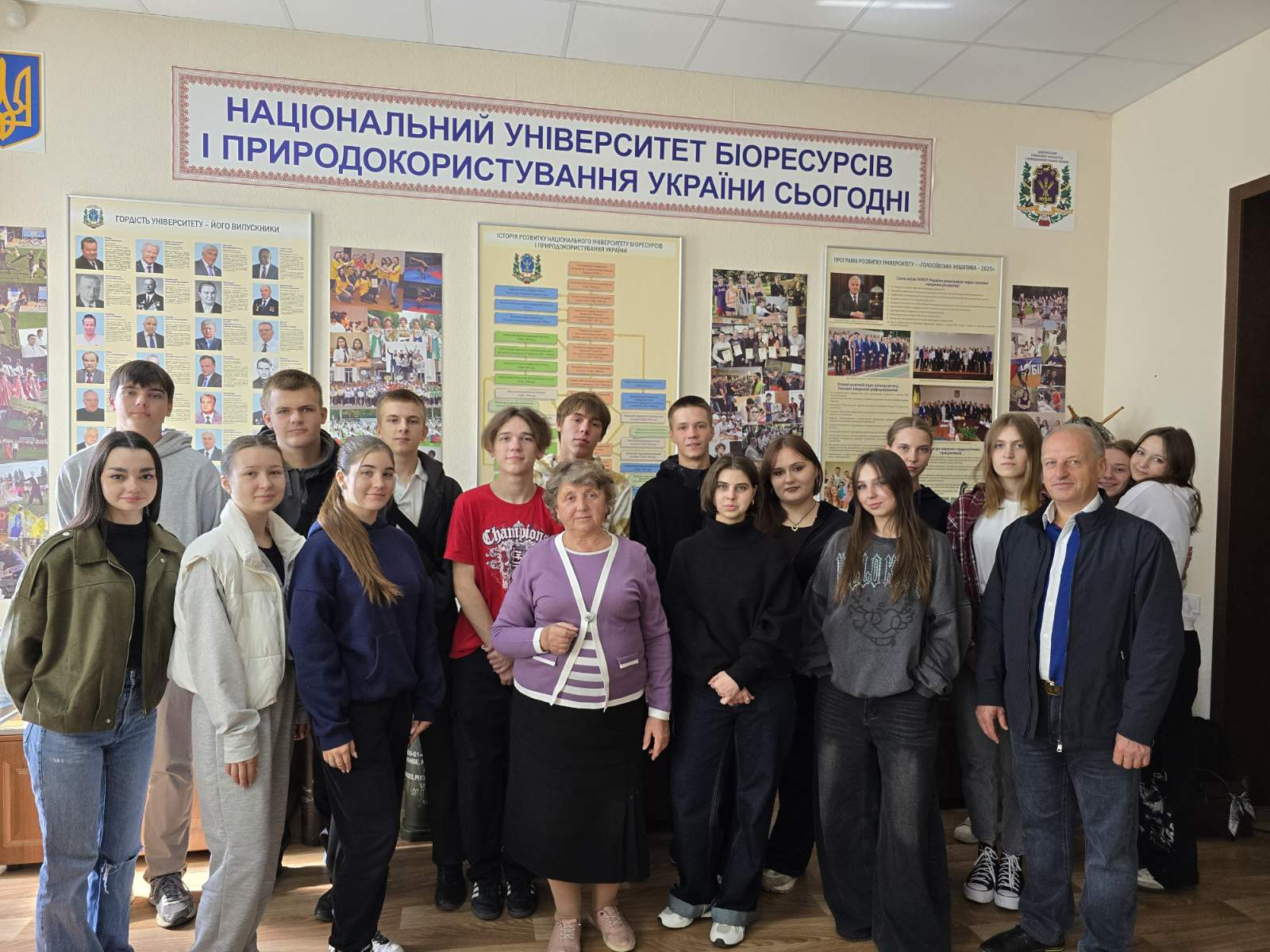
24 вересня 2025 р. Студенти Механіко-технологічного факультету, кафедри Транспортних технологій та засобів у АПК, група Транспортні технології 2506 та Транспортна логістика 2509 відвідали музей історії НУБіП України.
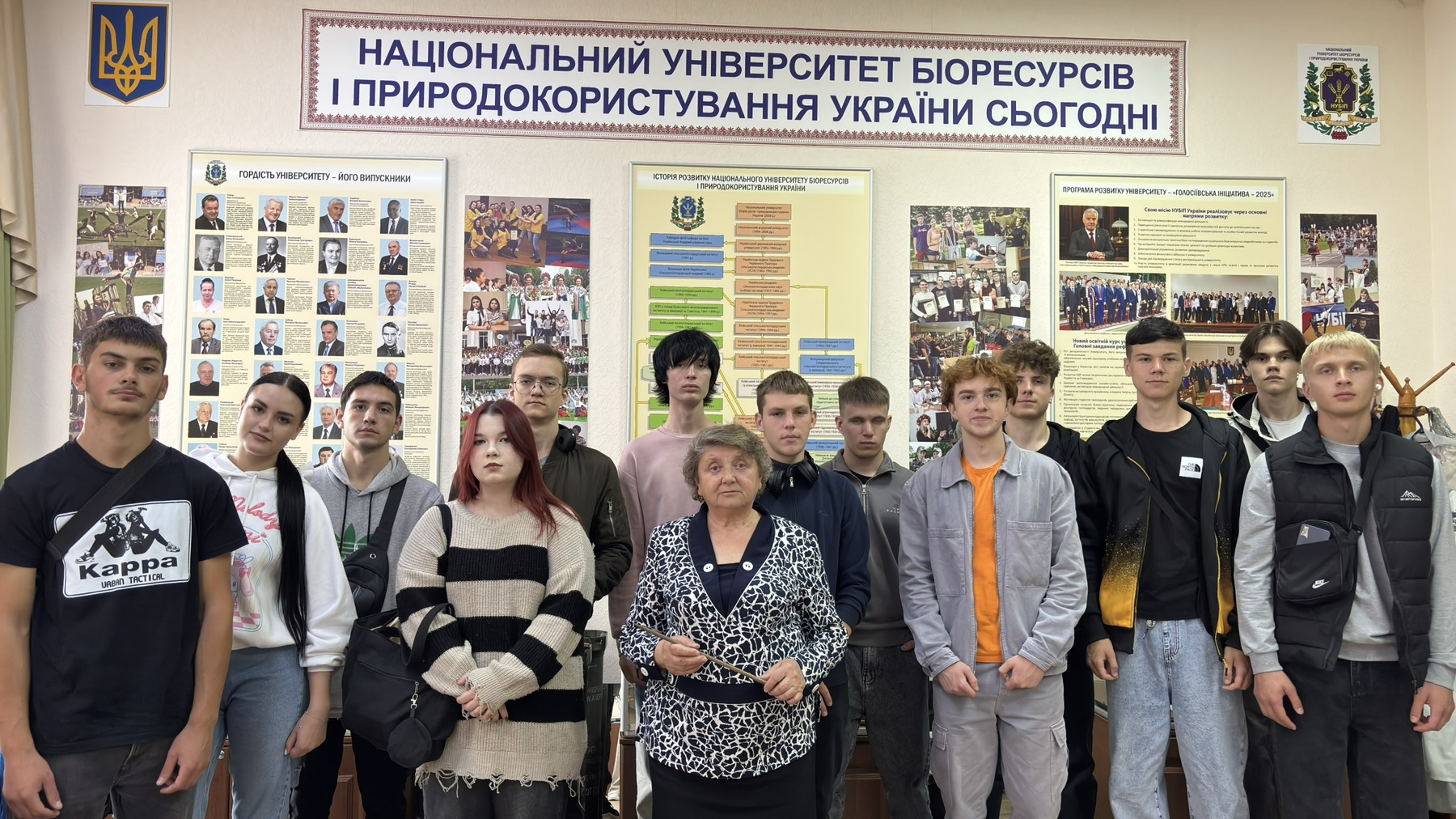
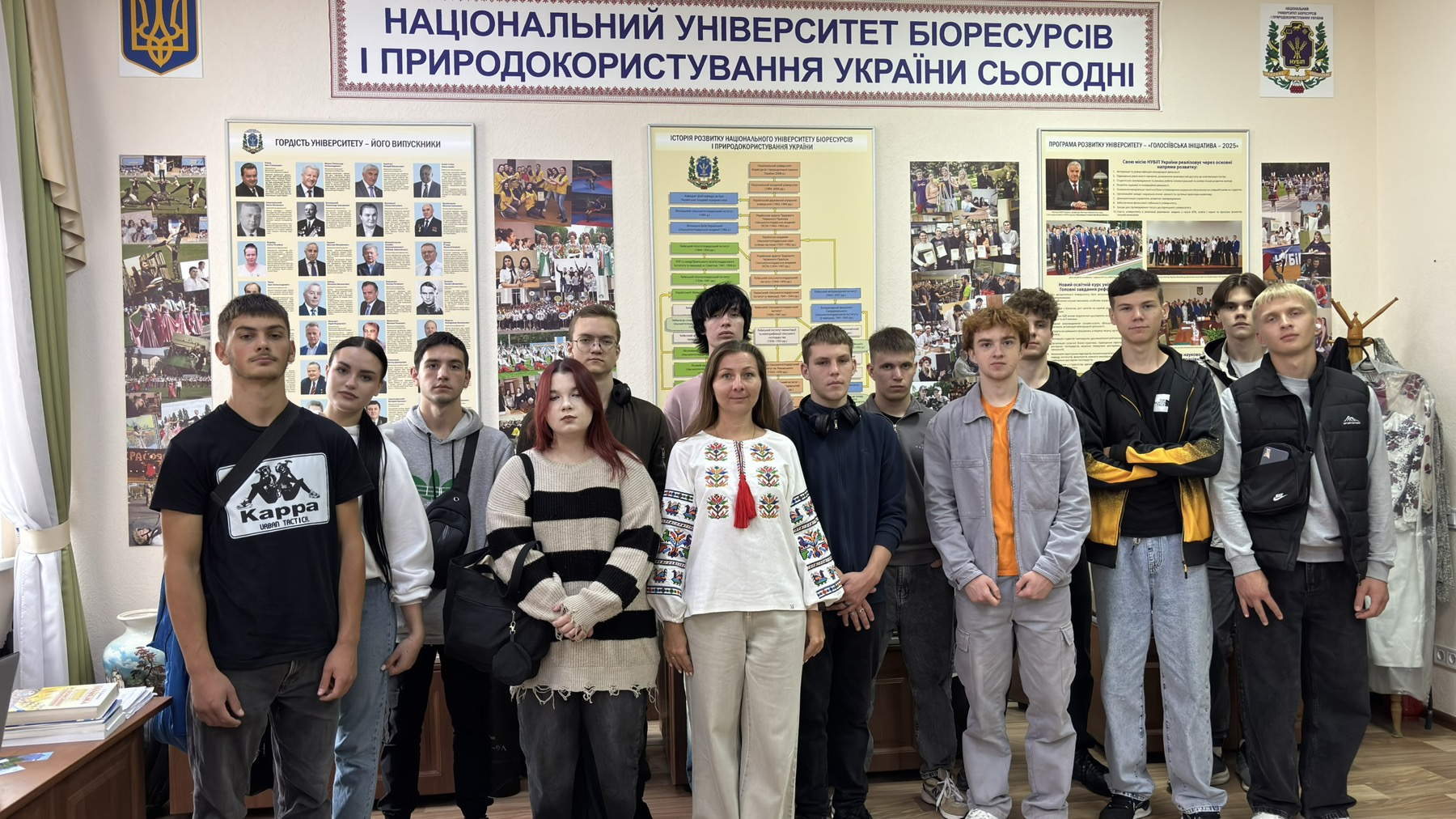
23 вересня 2025 р. Студенти спеціальності "Міжнародні відносини" гуманітарно-педагогічного факультету відвідали музей історії НУБіП України.
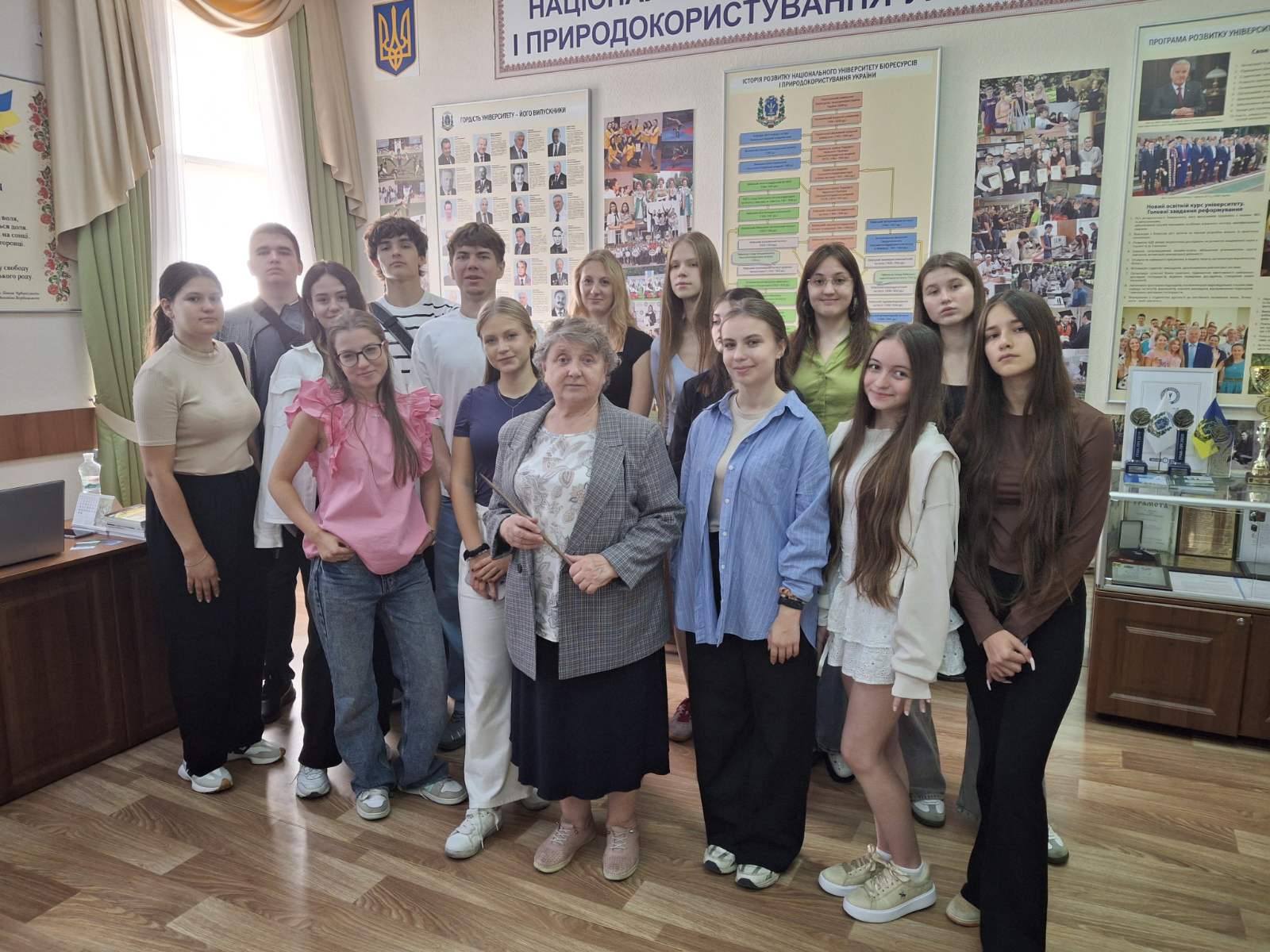
23 вересня 2025 р. Студенти спеціальності J8 «Автомобільний транспорт» механіко-технологічного факультету разом з наставником академічної групи Тетяною СЛІПУХОЮ відвідали музей історії НУБіП України.
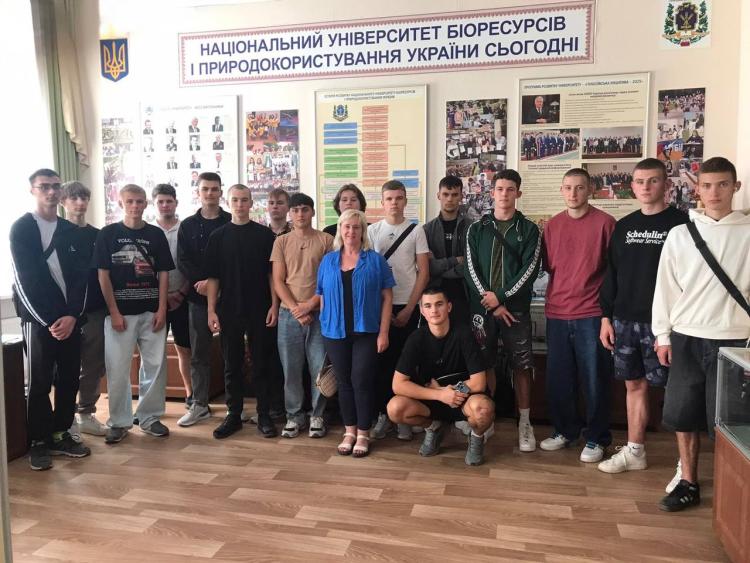
23 вересня 2025 р. Музей історії НУБіП України відвідали студенти 1 курсу економічного факультету.
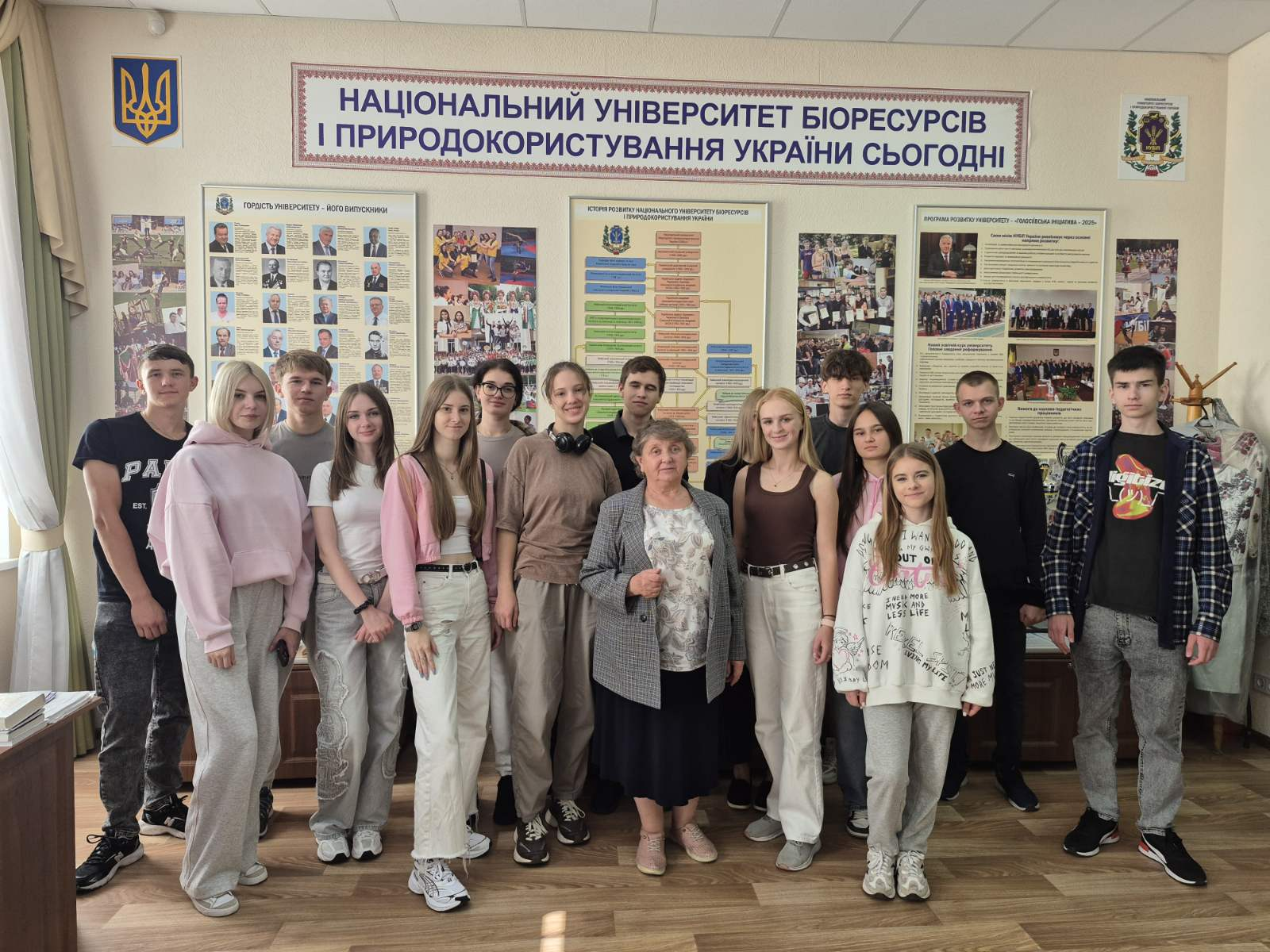
17 вересня 2025 р. Музей історії НУБіП України відвідали студенти 1 курсу економічного факультету.
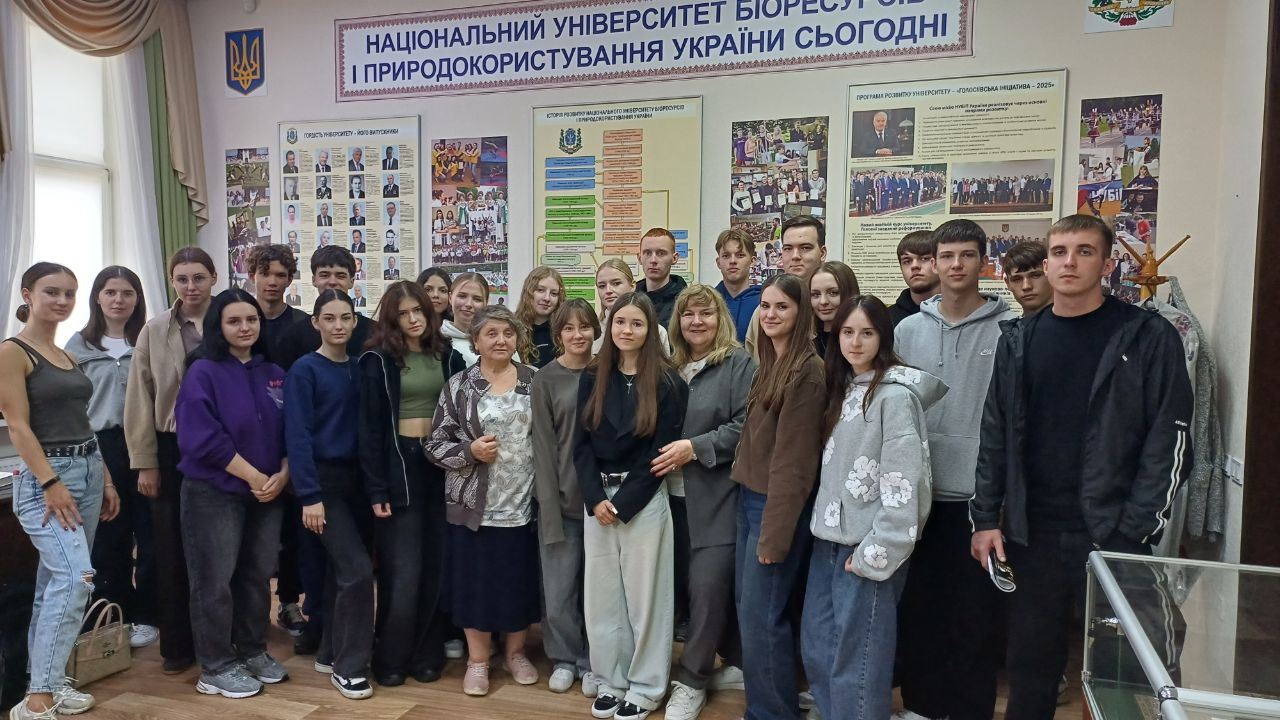
11 лютого 2025 р. Музей історії НУБіП України відвідали студенти механіко-технологічного факультету на чолі зі своїм керівником д.т.н., проф. І.Л. РОГОВСЬКИМ.
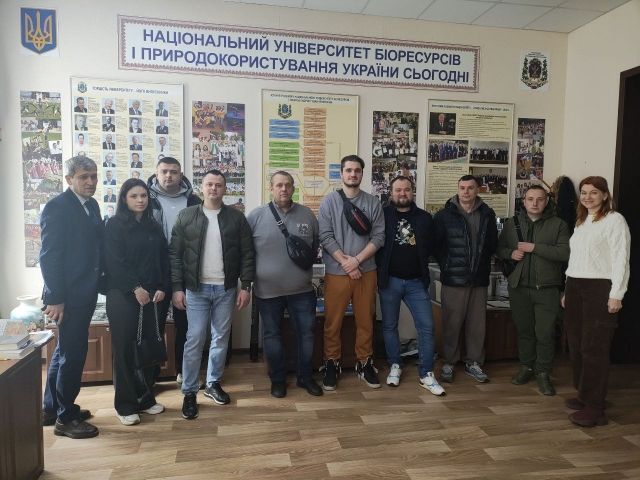
З 20 серпня 2024 р. Музей історії НУБіП розпочав проводити у новому 2024/2025 навчальному році ознайомчі екскурсії-лекції для студенів початкових курсів з історією навчального закладу. За перший місяць було організовано 38 екскурсій для академічних груп 1 та 2 курсу.